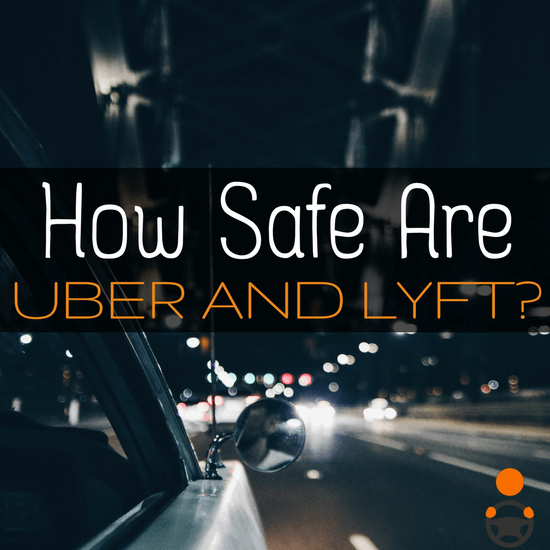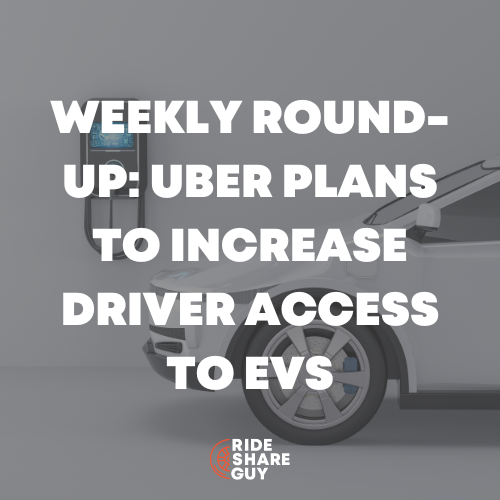A lot happened this week with Uber and Lyft, and today’s round up asks hard questions about how Uber and Lyft vet their drivers – and passengers. Today, RSG senior contributor John Ince covers the latest on driver screening, safety, and the return of Travis.
Maryland boots nearly 15 percent of new ride-hail drivers for failing screening [Washington Post]
Sum and Substance: Nearly 15 percent of new ride-hail drivers in Maryland have been booted from the apps over the past six months for failing state screening, despite having passed Uber and Lyft’s background checks, according to the state Public Service Commission (PSC). In more than 95 percent of cases, the rejected applicants had been driving for Uber, the commission said. The rejections included 460 applicants with disqualifying criminal histories and 900 who were flagged because of issues with their driving records, according to the PSC.
Uber blamed “outdated” screening requirements for the outsize number of rejections and said fewer drivers would be blocked as new screening criteria were rolled out by the state. The company said it followed a legal standard established by the commission in December 2015, but PSC staff had been applying broader vetting criteria until last week.
In the latest batch, nearly 40 percent of the rejected drivers were dismissed for driving or criminal history reasons, according to stats provided by Leonard. The remaining drivers were rejected for administrative reasons, which could include the failure to verify a driver’s identity, having too little driving experience, and holding a limited-term temporary license.
… Last year, as concerns arose over the effectiveness of ride-hail companies’ electronic screening, the PSC debated whether to institute fingerprint-based background checks. Uber threatened to leave the state if it adopted the checks, largely because of the limitations the costly screenings would place on its workforce. In the end, the commission approved an alternative screening method that allowed the companies to continue conducting electronic checks — subject to final approval by the state. Uber also had opposed provisions that, for example, banned drivers who were convicted of a single felony drug possession charge, according to the company. But a new rule approved by the commission would reinstate drivers’ eligibility after seven years, or after 10 years for multiple convictions.
My Take: Seems to me it’s about time Uber/Lyft take a hard and critical look at their priorities. Publicly they talk about how committed they are to safety, but their stance of background checks belies their public words.
Basically, it boils down to money. Doing the more detailed background checks will cost the companies more. It also means that they would lose significant numbers of their driving force. In DC/Maryland it translates to a 15% loss of drivers.
Uber/Lyft invest a lot in driver recruitment and their business models require having sufficient number of drivers on the road to make pickups faster. But at what cost? If those 15% are potential problems for the company and society – how can Uber/Lyft possible justify this risk with their public stance that safety is their top priority?
It’s a pennywise but pound foolish strategy, which this week is having an incalculable cost against Uber’s brand, with almost every media outlet in the country carrying headlines about the Uber driver in New York who passed a background check for Uber and then committed a terrorist act that killed 8 people. See below.
Uber: New York truck attack suspect passed background check [CNNTech]
Sum and Substance: Uber says it’s in contact with the FBI after it emerged that the suspect in the deadly truck attack in New York City was one of the company’s drivers. Sayfullo Habibullaevic Saipov, originally from Uzbekistan, has been living in the U.S. since 2010, law enforcement sources told CNN. Uber said he started driving for the ride-hailing app in New Jersey just over six months ago. The 29-year-old is accused of using a rented pickup truck to mow down cyclists on a busy bike path near the World Trade Center in Manhattan on Tuesday. He was shot and detained by police. Uber said Saipov passed a background check in order to drive for the company and has now been banned from its platform. But his case may raise questions about Uber’s background checks process.
Records show Saipov received multiple traffic citations in the past. In 2015, he was charged in Platte, Missouri, with failure to equip a motor vehicle carrier with or maintain a required brake system. After he missed his court appearance in November 2016, the court entered a guilty plea on his behalf. New Jersey rules for ride-hailing services like Uber and Lyft require the companies to conduct criminal background checks, which are usually outsourced to specialist firms. Convictions for crimes like reckless driving automatically disqualify a driver.
Uber applies different criteria for background checks depending on state regulations. In general, drivers cannot have more than three minor moving violations such as speeding tickets in the past three years. The company didn’t respond late Tuesday to questions about Saipov’s past citations….
It’s not the first time one of the company’s drivers has been linked to a high-profile crime. A Missouri man was charged with murder last year over a killing spree he is accused of carrying out in between picking up and dropping off passengers in Kalamazoo County.
My Take: I make a habit of checking my Google filters for “Uber Driver” or “Lyft Driver” every few days and almost always the headlines are dominated by allegations of sexual assault, violent crimes, disputes, and attacks by and against drivers.
It’s been this way for years, and within the Uber/Lyft corporate/investor/media environment, there’s almost no discussion challenging the company’s commitment to safety. It’s time to bring some considered attention on the issue that really is at the heart of of ridehailing – is it safe for complete strangers to get into the car with other strangers – when the screening processes on both ends are suspect?
It’s time to start paying attention to the elephant in the room – Uber/Lyft drivers are in an unsafe occupation and many drivers are problem cases themselves. How unsafe? We don’t know because neither Uber nor Lyft will release any data of either driver or passenger safety.
When the media sensationalizes stories involving Uber or Lyft drivers, good drivers are increasingly stigmatized by the ones who make the headlines, like this one.
Uber-SoftBank Deal in jeopardy over spat about Kalanick’s role [theaustralian.com]
Sum and Substance: Uber’s effort to close a multibillion-dollar investment by SoftBank Group is on the rocks as co-founder Travis Kalanick tussles with fellow board members over the limits of his power at the ride-hailing giant, people familiar with the matter said. Uber in recent days had reached an agreement in principle on the deal with a group of investors led by SoftBank that would reshape Uber’s board and other aspects of its corporate governance and bring on a powerful partner in SoftBank Chief Executive Masayoshi Son, the people said.
The deal could be valued around $US10 billion. But Mr. Kalanick alerted fellow board members Tuesday he wants removed from the deal a provision that would require a majority vote on any directors he appoints in the future, the people said. He is also seeking a temporary stay on a lawsuit filed by Benchmark Capital, one of Uber’s biggest investors, over his control of two board seats, or a formal guarantee the suit will be dropped after SoftBank completes the investment, the people said. The dispute threatens to disrupt a tentative stability brought by his replacement, Dara Khosrowshahi, after nearly a year of turmoil.
My Take: Looks like there remains some residual issues that need to be resolved before the Softbank deal can go through. TK apparently isn’t going away quietly into the night. He wants to retain power in the company, and is holding the Softbank deal hostage until he gets it.Meanwhile, Benchmark and other investors see the deal their opportunity to take a lot of money off the table at a price that makes their investment look like a home run.
Because nearly everyone wants the Softbank deal to go through, it looks to me like TK has a strong hand here. He just might get what he wants – more power to him. Hey, he’s the one person most responsible for Uber being what it is today – for better or for worse.
Readers, what do you think of this week’s round up?
-John @ RSG





